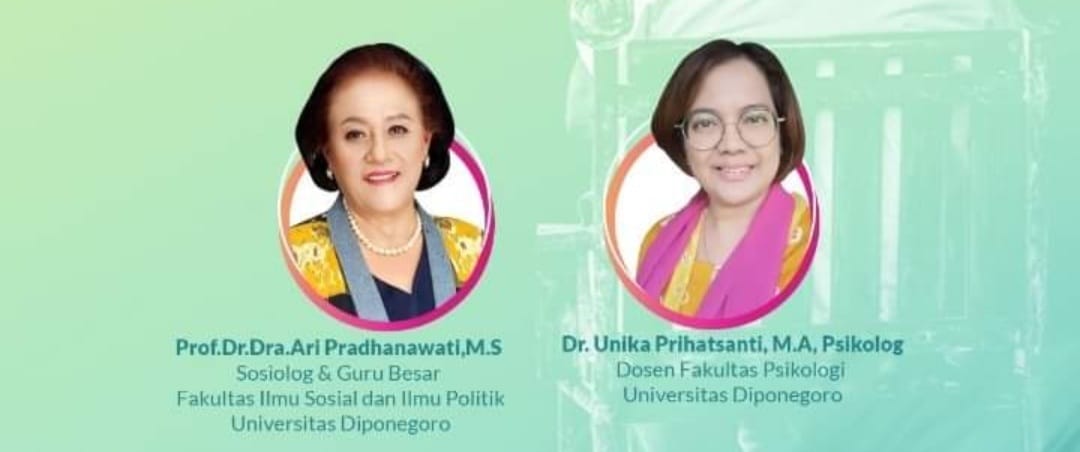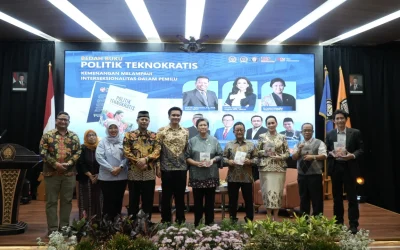Recently, the news concerning those who leave their parents to a nursing home reaps the pros and cons or is still considered as a bad stigma in Indonesia. Several have claimed that no matter what the reason is, the children should take care of their own parents. According to their faith and cultural belief, it seems strange to leave parents in a nursing home while their children are busy with their own businesses. However, not everyone thinks so. Several people believe that staying in a nursing home is not a bad idea. Currently, there have been many nursing homes that offer warmth and comfort to the elderly.
Prof Dr Dra Ari Pradhanawati, M.S., a Sociologist and a Professor at Faculty of Social and Political Sciences Universitas Diponegoro, said that from a sociological point of view concerning the phenomenon which happened in Indonesia, it seemed inappropriate to leave our parents in a nursing home according to the cultural belief. Nevertheless, everyone had a different perspective in addressing this issue.
“According to the culture in Indonesia, the children take care of their parents and the parents follow their children. However, everything is different in this millennial era. It means the current development follows our daily activities. The decision to take care of the parents should be agreed upon by both parties, husband and wife or husband’s mother or the wife’s mother should agree. If one of them does not agree, there will be a problem. In our culture, taking care of the parents is a must yet casuistic. Besides, there is also the good side of leaving the parents in a nursing home” said Prof Ari.
“In our mind when we hear someone says nursing home, it is as if we abandon our parents even though it is not true. Somehow, it can put more pressure on our mind whenever we hear the words nursing home. This is to say, what if we make another term for it that is more pleasant, such as a future house with complete facilities. Thus, our connotations of a nursing home for the elderly are transformed into something that can touch the heart of those who hear it and the idea of going to a nursing home does not always mean we cast away our parents tho we have tried to explain it” she added.
While Dr Unika Prihatsanti, M.A., a psychologist and a lecturer at Faculty of Psychology Universitas Diponegoro explained that in earlier times, parents had taken care of the children. Sometimes, they expected that their children would become their investments in the future. This meant, when they became older, they hoped they would be taken care of by their children. Nevertheless, the current generation had changed and the shift of the situation had brought it even further from the earlier generation. Thus, we needed to accept it.
“We no longer use the term Jompo (old) or Lansia (elderly). Meanwhile, we prefer to use the term adiyuswa. Adi means good and Yuswa means age. So, when it is merged, it means a wise age. Thus, it has a positive connotation and psychologically, the human life cycle is like a normal curve. From the moment we do not know anything or since we are a baby to the peaks and then goes down. In this Adiyuswa, we experience a declining stage of life, there is also the quality of life when we achieve at least three things, namely physical, psychological, and interpersonal well-being. This means that physically, cognitively, socially or emotionally fulfilled. The family has a big role for adiyuswa, even not only for it but also those who are in our circle”, she said.
In old age, there was a phase where they saw the past as their success. However, not everyone in this stage of physical or psychological development could be compared or was equal in all cases. Indeed, most of them would experience a lonely phase, the level of loneliness was also different. It meant that many things made this adiyuswa feel lonely, such as lack of care, fewer friends, limited activity and absence of a partner. Different types of loneliness arose from unmet emotional needs.
“We cannot blame a child who cannot accompany the parents during their old times since they have to work. On the other side, several people who are open to any change are happy to spend their old time at the adiyuswa home since they get more friends there. Meanwhile, the empowerment of adiyuswa in several countries have been activated, this policy is good for involving the parents in the world of work, which is now common. As long as they control their health and they are fit, this is a good policy so that the psychological impact to the adiyuswa can be overcome, with them working they will overcome the feeling of loneliness. Of course, they need to choose their work according to their own physical condition (Lin-PR)
Source: Undip.ac.id




0 Comments